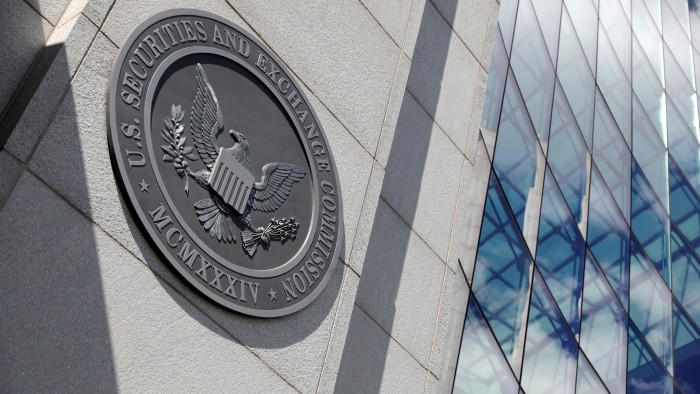SEC urged to rein in single-stock leveraged and inverse ETFs

Simply sign up to the Exchange traded funds myFT Digest -- delivered directly to your inbox.
Latest news on ETFs
Visit our ETF Hub to find out more and to explore our in-depth data and comparison tools
The Securities and Exchange Commission should prevent leveraged and inverse single-stock exchange traded funds from being called ETFs, members of its Investor Advisory Committee have said.
The single-stock ETFs, which provide leveraged or inverse exposure to just one stock, should be required to disclose more information than other ETFs about their risks and uses, said panellists at a meeting of the committee. They should also be subject to more restrictions, they said.
Single-stock products run contrary to what investors expect an ETF, or any fund, to do because they lack diversification, said Todd Rosenbluth, head of research at VettaFi, commenting afterwards on the discussion that took place in the meeting.
“People who are investing in ETFs expect them to be diversified,” he added. “They expect them to own multiple securities. But I don’t believe there is anything that is requiring them to be that way.”

This article was previously published by Ignites, a title owned by the FT Group.
In 2020, large ETF providers including BlackRock, Vanguard and State Street submitted a proposal to the New York Stock Exchange, Nasdaq and Cboe Global Markets urging them to label leveraged and inverse ETFs as exchange traded instruments instead.
Jillian DelSignore, managing director and head of adviser sales at FLX Networks, pointed out that single-stock ETFs can be more expensive and opaque than a regular ETF and could be riskier because they are less diversified.
There are more than 20 single-stock ETFs on the market presently, DelSignore said. The first ones launched in July, but rollouts have slowed recently after some sponsors cancelled and withdrew filings for ETFs that would have invested in international securities.
The sharp rise in the number of the products could not have happened without the 2019 ETF rule, which allowed for the streamlined launch of certain ETFs without filing for exemptive relief with the SEC first, said Bob Elliott, chief investment officer at Unlimited Funds, at last week’s meeting.
Single-stock ETFs stretch the limits of the ETF rule, DelSignore said.
The products were likely not what the regulators envisioned when they passed that rule because they “run contrary to the ETF mission”, said Patrick Cleary, chief executive of ETF Architect, at the meeting.
Single-stock ETFs can result in a 100% loss “overnight,” Elliott noted, “and that is not what an ETF is intended to do”.
They are also unnecessary because investors can access levered or inverse exposure to the underlying stock directly through prime brokerages, Cleary noted.
Professional investment advisers have limited their own access to single-stock ETFs because they are so risky, said DelSignore, who also attended the meeting. However, retail investors can directly purchase them with a prime brokerage account.
“If a professional adviser cannot use these platforms . . . why are we holding the same standard for these brokerage platforms for retail investors?” she said. “We should probably have some consistency between a professional investor and a retail investor.”
By calling the products safe but also imposing limitations on professional advisers, proponents of single-stock ETFs are trying to “ride two horses at the same moment”, Cleary said.
However, Rosenbluth said that new limitations on retail access may not be the right solution. “I don’t think there necessarily should be more hoops for an investor to jump through to purchase a leveraged or inverse ETF.”
Single-stock ETFs often have clear disclosures on their sponsors’ websites, Rosenbluth noted, but most retail investors purchase them through a broker, where such disclosures do not exist.
“That’s where the disclosures need to be.”
But most retail investors do not look at the prospectuses before buying single-stock ETFs, said Scott Farnin, legal counsel at Better Markets.
The SEC could require a “black box warning” on single-stock ETFs, Elliott said. Certain fintech platforms could “force you to stare at it”, he added.
“We’ve got to get this in the heads of people because the everyday investor does not understand the risks here.”

Click here to visit the ETF Hub
Comments